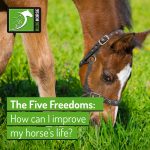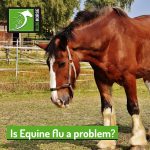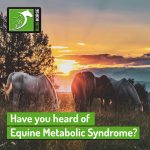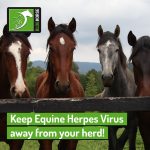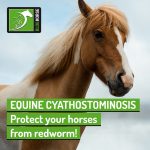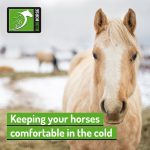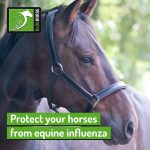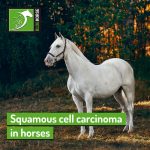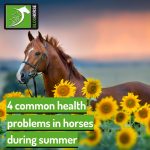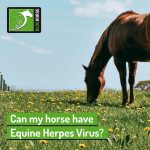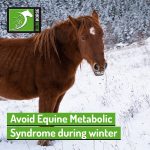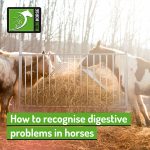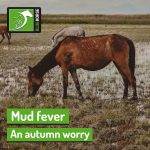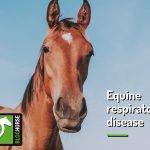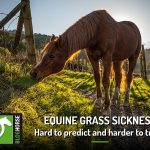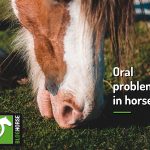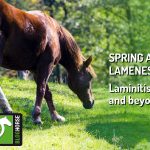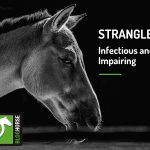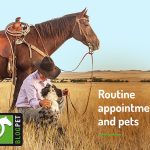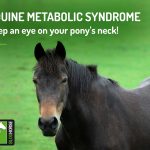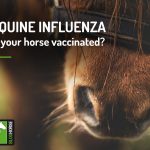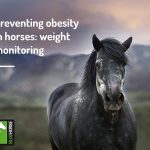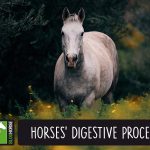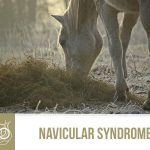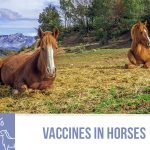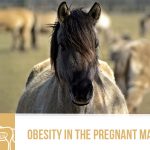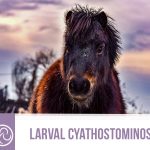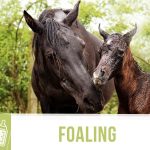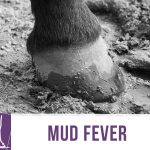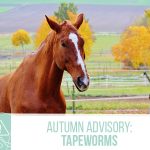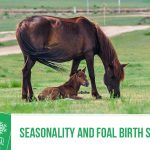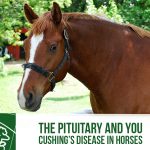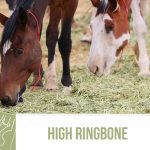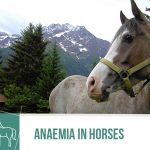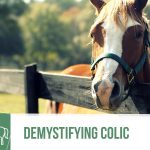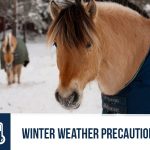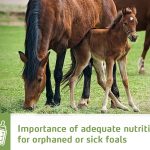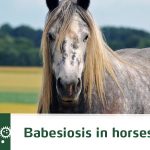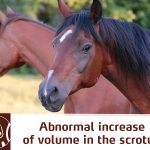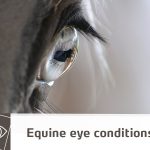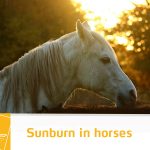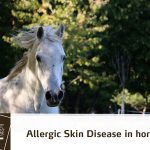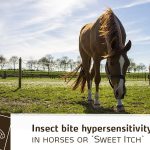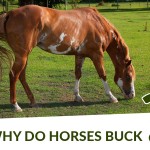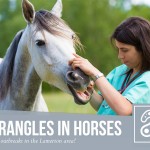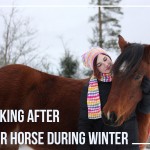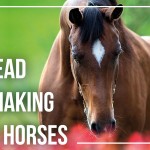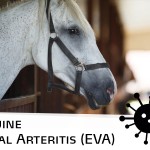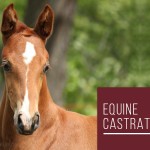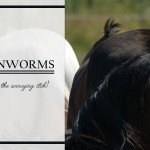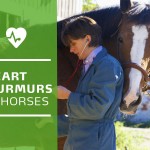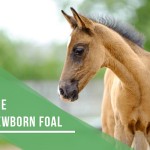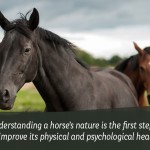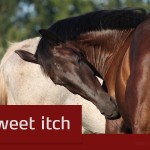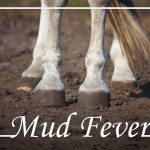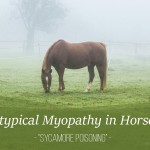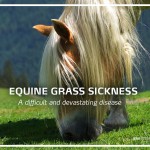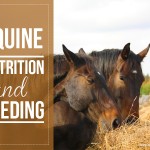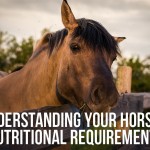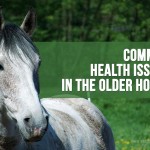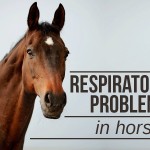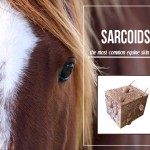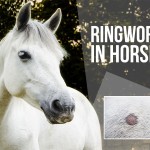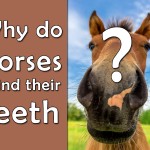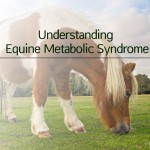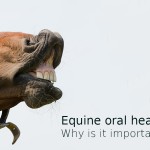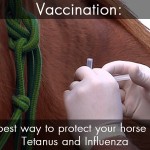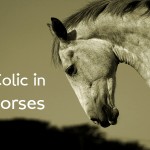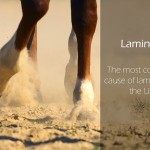The Pet Professionals Blog
Welcome to The Pet Professionals blog. Our aim is to keep pets happy and healthy through informed education of responsible owners who demand the best for their companions.
Currently showing articles about 'Horses' - Show all articles
View articles by category:
|
Cats |
Dogs |
Horses |
The Pet Professionals |
As we mentioned in our last Equine blog, horses and donkeys are amazing companions! They support us by giving us unconditional love, helping us with farm and transportation work, and can perform as outstanding athletes in various types of competitions.
As with all other companion species, the Five Freedoms are a...
Read more >Published 18 Apr 2024
Though there's no such thing as a recipe for equine happiness, there are some basic ingredients that need to be in the mix! These include adequate health care, gentle handling, balanced nutrition, and an environment that allows for quality interactions and all the opportunities required to express their natural beh...
Read more >Published 26 Feb 2024
Have you heard of Equine influenza? Also called Equine flu, this highly infectious disease affects the respiratory system of horses and donkeys, and it can quickly make itself at home in your yard!
These strains of viruses exist all over the UK, sometimes causing outbreaks that have forced many equestrian events...
Read more >Published 04 Jan 2024
Internal parasites in horses are everywhere, and sooner or later, your animals will find themselves infested with one of the many species of worms that are prevalent in the UK. These can cause a lot of problems such as gastrointestinal discomfort, weight loss and might even migrate to other organs, increasing the r...
Read more >Published 19 Oct 2023
If you have a horse with the tendency to gain weight easily, especially around the neck, then he or she might have Equine Metabolic Syndrome (EMS)!
This syndrome is caused by insulin dysregulation, and it affects your horse's ability to use blood sugar adequately, especially when he or she has access to feed or ...
Read more >Published 19 Jun 2023
Have you ever heard of chronic fatigue in horses? This problem can come from situations like overtraining, which can be a severe issue for your horses sporting career!
Training creates a lot of physical and mental stress that must be balanced with proper rest and recovery time to avoid fatigue. No matter how t...
Read more >Published 09 May 2023
Equine Herpes Virus is a concern for horse owners everywhere, especially for working animals who travel and have a greater chance of contacting other infected horses or for yards which often bring in new horses.
This viral disease can cause debilitating respiratory or neurological problems and is highly contagio...
Read more >Published 31 Mar 2023
Cyathostomins are also called redworms, and they are one of the most common intestinal parasites in horses in the UK.
These parasites can cause severe issues in highly infested horses due to the mass migration of larvae from their burrows in the intestinal wall during early spring. This means that diagnosing, tr...
Read more >Published 22 Feb 2023
Horses are hardy animals, being able to handle cold and dreary days that would make the rest of us miserable.
However, they still have their limits and sensibilities, so to avoid unnecessary problems during the bad weather season, give your yard and routines a check-up!
Read on to learn about the best ways to...
Read more >Published 05 Jan 2023
Sycamore toxicity happens when horses ingest the leaves and seeds of sycamore trees, which causes a potentially lethal problem called atypical myopathy.
Due to the unusual weather over the summer that has caused a boom of sycamore seeds, the British Equine Veterinary Association has sent out a warning for owners...
Read more >Published 08 Nov 2022
Equine influenza, also known as equine flu, is a widespread viral infection in horses. The UK has experienced several outbreaks in the past decade, requiring strict quarantines to resolve, which means economic losses for horse owners who cannot participate in events or competitions.
While it is rarely fatal, it ...
Read more >Published 21 Sep 2022
As weve mentioned in our previous blog post, horses are prone to several skin cancers, one of the most common being squamous cell carcinoma.
These tumours appear mainly in the skin, around the eyes, genitals and mouth due to overexposure to the sun and unfortunately they can quickly invade surrounding tissues....
Read more >Published 04 Aug 2022
Horses are prone to many cancer problems with Sarcoids, also known as fibrosarcoma, accounting for 40% of all equine cancers and are the most common form of skin cancer.
Keep reading to know more about this locally invasive problem and what it means for your horse.
How can sarcoids affect my horse?
Sarcoid...
Read more >Published 19 Jul 2022
Summer provides lots of opportunities to enjoy the warm weather with your horse, but it can also bring some health issues.
Here are some of the most common problems that horse owners might encounter this season and what to do when faced with them.
Dehydration
Dehydration can happen when a horse loses more wate...
Read more >Published 09 Jun 2022
Strangles is a highly infectious equine disease caused by a bacteria called Streptococcus equi equi that causes severe abscesses in the neck area, high fever and nasal discharges.
This illness can quickly spread throughout your herd, and proper sanitary measures are required to make sure that it is contained and...
Read more >Published 25 Apr 2022
Dangerous airborne viruses that can cause respiratory and neurological diseases are not just for humans. Equine herpes virus (EHV-1 and EHV-4) is a virus that has a worldwide distribution and is highly contagious, which means that your horses are at risk of being affected, especially if they travel extensively.
...
Read more >Published 25 Mar 2022
Winter is a difficult time for all of us, horses included! Keeping up with exercise when the weather is dreadful can be a chore, but it's vital for our equine friends' health.
With reduced exercise and increased confinement to smaller spaces, your horses have a risk of weight increase and even obesity. Due to gene...
Read more >Published 26 Jan 2022
With 2021 coming to an end, we would like to invite you to take a moment to reflect on how important your pets have been in your life this year.
They can really be our lifeline sometimes, providing us with moments of comfort, greeting us with contagious joy and making sure that we are never alone.
We are sure tha...
Read more >Published 28 Dec 2021
Digestion is a vital physiologic process, as it allows the nutrients in food to become available and be absorbed into the bloodstream, thus fuelling a horse's body.
As large, herbivorous animals, horses have a complex yet delicate digestive system, and any disturbances to their digestion can lead to health compl...
Read more >Published 15 Dec 2021
Mud fever can be a challenging problem for horse owners during the wetter months of autumn and winter, requiring careful management of both the horses affected as well as their paddocks and fields.
This illness is caused by a bacterial infection affecting the lower portion of the leg due to muddy and wet conditi...
Read more >Published 20 Oct 2021
Preventing injuries and illness is always better than treating them! If we had to point out a situation where this is especially true, it would be when it comes to hoof health in horses.
Hooves are fragile yet fundamental structures in equines, and many problems affecting the hooves are liable to evolve into sev...
Read more >Published 29 Jul 2021
Like any other animal, including ourselves, horses can suffer from a multitude of injuries that may result in open wounds.
Today, we're covering three important aspects to consider when facing wounds in horses that can help you be prepared for an unexpected situation.
#1 - Vet contact information
...
Read more >Published 02 Jun 2021
Fun fact about horses' anatomy and respiratory system:
Did you know that whilst most other mammals, such as cats and dogs, have 13 pairs of ribs, horses usually have 18?
This means that their chest is longer, allowing it to accommodate a large set of lungs that have a capacity of around 55 litres, which is ni...
Read more >Published 19 Apr 2021
Equine grass sickness (EGS) has caused significant losses in the horse, pony and donkey population, especially in the UK, which is the country with the highest incidence of this terrible disease. As it has a 95% mortality rate and no known cause, this condition is of great concern to owners in affected areas.
...
Read more >Published 04 Mar 2021
January 2021, it's the beginning of a New Year, and if you're like most people who set New Year's resolutions, you're likely to have written down 'eat better', 'start exercising' or 'lose 2 kgs' on your list.
If you find these goals relatable, so do we, as it is well known that proper nutrition, an active lifest...
Read more >Published 25 Jan 2021
When we think of digestion, the first organ that usually comes to mind tends to be the stomach. However, all of the digestive organs are equally important to guarantee your horse's nutrition, and the digestive process starts in the mouth.
So, what should we keep in mind regarding our horses' oral health care?
...
Read more >Published 22 Oct 2020
Every season has its grace, and autumn has arrived bringing us shorter days, beautiful colours and a longing for cosiness and evenings by the fire.
Bringing some joy to this unprecedented year, autumn celebrations are fast approaching, so this is the perfect opportunity to go over some important pet safety preca...
Read more >Published 08 Oct 2020
Preventive medicine is the best way for us to keep our pets healthy, but, unfortunately, health is not something that we can always predict and control. Accidents can happen, and there are a number of illnesses that cannot be easily avoided, such as cancer and heart disease, for example.
But theres something w...
Read more >Published 28 Sep 2020
The heat is back on, summer is in full swing and horse owners are faced with a difficult challenge.
How do you keep up with exercise and work needs in this hot weather?
During this time, heat stress is a significant concern for all owners, and it's vital to keep monitoring your horse's hydration status and w...
Read more >Published 05 Aug 2020
With the beautiful weather weve been having lately, we feel this is the perfect opportunity to share with you our top three tips to help you enjoy Summer with your four-legged companions.
#1: Keep your pets protected from heatstroke
As usual, prevention always comes first!
Heatstroke occurs when your pet...
Read more >Published 10 Jun 2020
One of the most beautiful landscapes that spring has to offer us is a vast, luscious green pasture, with the sun shining up in the blue sky and the opportunity for our horses to graze freely and enjoy nature.
However, as horse owners are well aware, fresh spring grass is very sugary and, if you have ro...
Read more >Published 20 May 2020
With the UK in lockdown, it's essential that you, as a horse owner, know what to do to ensure your horse is properly cared for whilst keeping yourself safe and complying with the government's recommendations.
Attending to your horse's basic needs is considered essential and, therefore, allowed. However, this means...
Read more >Published 09 Apr 2020
After COVID-19 was characterised as a pandemic by the World Health Organisation on 11 March, it is now more important than ever that we protect ourselves and help everyone else at the same time.
Basic preventive measures against the virus include:
Washing your hands frequently for at least 20 seconds;
Avoidi...
Read more >Published 23 Mar 2020
Strangles, also known as Equine Distemper, is an infectious disease that all horse owners should be aware of. It's caused by a highly contagious bacteria from the Streptococcus equi equi species that can be found all over the UK.
This disease can be easily transmitted through contact with infected animals or conta...
Read more >Published 05 Feb 2020
Owning a pet is a wonderful, gratifying experience but also a big commitment. Once you adopt or buy an animal, you become responsible for their health and well-being, which goes far beyond taking care of their basic needs.
Preventative veterinary care, such as proper nutrition, vaccination and regular worming an...
Read more >Published 19 Dec 2019
Bad weather can be a real nuisance for horses as it usually means less time spent grazing, galloping and just simply enjoying being out in the field with their friends.
As a result, they can become bored and stressed, which can lead to negative repercussions in their behaviour and health.
The good news is the...
Read more >Published 07 Nov 2019
Equine Metabolic Syndrome
Equine metabolic syndrome (EMS) is a major metabolic disorder in horses, and it is characterised by the deregulation of several metabolic processes, chiefly the proper use of insulin. This situation might cause severe laminitis, and it is one of the main weight-related issues in...
Read more >Published 19 Sep 2019
Given the recent outbreaks that have been reported throughout the UK and Europe, we feel like this is a good time to talk about equine influenza.
This disease, also known as equine flu, is highly contagious and affects horses' respiratory tract. Most cases will show signs of lethargy, decreased appetite, fever, ...
Read more >Published 08 Aug 2019
As the principal constituent of a horse's body, accounting for 70% of its composition, water is a fundamental part of life, participating in every physiological process from temperature regulation to digestion.
This is why water consumption is so important and why we should keep an eye on our horses' drinking be...
Read more >Published 21 Jun 2019
Now that the weather is starting to get warmer and the days are longer many horse owners will begin taking their horses out for much anticipated extended walks.
However, before you start spending more time in the saddle, and to assure a safe transition for your horses, here are some things you should keep in mind:...
Read more >Published 23 Apr 2019
People's lifestyle and eating habits have dramatically changed over the years, and so have their pets'. As a result, excess weight and obesity have become a growing concern in human and veterinary medicine, as these have been proven to be associated with a number of diseases in all species. Overweight horses, i...
Read more >Published 26 Feb 2019
For many of us, when we think of relaxation, the first thing that comes to mind is a day spent at the spa, enjoying a lovely massage and lots of pampering. But it turns out that were not the only ones who are keen on massages, horses appreciate them too!
Besides the fantastic feeling of comfort and warmness that...
Read more >Published 16 Jan 2019
Horses are herbivorous animals that have a very complex and sensitive digestive system. As with all animals, proper nutrition is vital for their wellness and health.
Let's do a simple overview of the horses' digestive process!
There are some things in common between horses' and our digestion: it will start in t...
Read more >Published 28 Sep 2018
Training is an activity that can not only be useful in your daily life, but it can also be gratifying for both you and your dogs. By spending quality time together, youll strengthen the bond between you and your dog, keeping your pet mentally stimulated. It will take some time, patience, and lots of treats, but s...
Read more >Published 05 Sep 2018
Animal-assisted activities and therapies have benefits that have been recognised for a long time, and equine therapy is no exception.
As the name indicates, this type of therapy makes use of horses to help people who are dealing with physical, emotional and mental problems, such as attention deficit disorder, au...
Read more >Published 23 Aug 2018
Horses have very particular anatomy and physiology. They are very large animals, and their weight is all supported by 4 hoof-covered phalanges or fingers.
Yes, you read that correctly! Horses only have one complete finger in each limb, and the last distal phalanx (the coffin bone) is covered with the h...
Read more >Published 04 Jul 2018
How much do you know about vaccines? They are one of the most important parts of preventive medicine and our horses are no exception.
Vaccinations allow us to avoid very severe diseases with very little risk and eliminate the need for difficult treatments. Beyond being instrumental in avoiding many infectious ...
Read more >Published 27 Mar 2018
Did you know that body condition scores in mares are quite important during pregnancy? This is especially true for mares that have body condition scores that are too high.
If you think having an obese mare won't influence your foals, think again. A new study has revealed that it may influence a lot more future f...
Read more >Published 01 Mar 2018
Late Winter and Spring are seasons when this parasitic disease does the most damage. While not very common, ponies and horses that are under 5 years old can suffer from these insidious worms.
So, why are these parasites an issue? Adult cyathostomins are easily removed with many deworming compounds but larvae are...
Read more >Published 26 Jan 2018
Foaling, also called parturition, is a very important stage of a mare's life and it is just as important for the owners.
The correct recognition of the stages of labour and knowing what to expect is fundamental to ensure everything goes as smoothly as possible. Now, luckily, most mares will give birth ...
Read more >Published 11 Dec 2017
With the colder months fast approaching, it's always good to remember some things that might affect your horses during this weather.
Mud Fever is actually part of a series of conditions that make up Equine Pastern Dermatitis (EPD) and it can be caused by many different factors.
This condition shows up during ...
Read more >Published 20 Oct 2017
As much as summer was sweet and warm, it's time to cool into autumn! With the changing season and the coming rain, a whole novel palette of horse problem crops up.
One of the issues the coming season presents is tapeworms, flat and horrendously long parasites of our horse buddies that can potentially cause a who...
Read more >Published 18 Sep 2017
Fresh from the presses! Published just this year in May, a new study sheds light on the how and why of seasonal size differences in foals.
Horses, like many other animals, are seasonal and their metabolic processes will vary during the year. Makes sense, nutrients available in Winter are not the same as the ones...
Read more >Published 25 Aug 2017
This is a thought that has probably crossed every caring and loving owner's mind: Is it worth getting your pet insured?
Responsible pet ownership has costs. From diet to preventative care (vaccinations, neutering and worm/flea treatments), having a pet means spending money and when considering the possibility of...
Read more >Published 13 Jul 2017
Detecting pain responses in our faithful companions as soon as possible is one of the most fundamental ways to ensure that illness is investigated and treated in a timely fashion.
However, detecting pain in animals, especially horses that are being ridden, can sometimes be quite complicated. Research has shown t...
Read more >Published 29 Jun 2017
Ulcers! The medical term for an organ or body surface that had a chunk torn off of it due to a damaging influence.
In this case, gastric ulcers are when the surface of the horse's stomach has been eroded and there have been damages to this organ. This, understandably, is quite a problem.
The equine stomach i...
Read more >Published 02 Jun 2017
Do you own an older horse? Then this post is definitely for you. Neurodegenerative diseases that can afflict elderly humans, like Alzheimer's or Parkinson's, are fairly well known and this has proved to be true for our faithful horses as well.
Cushing's Disease is also called dysfunction of the pars intermedia o...
Read more >Published 05 May 2017
A recent study focused on collecting noseband data from 750 horses competing in Ireland, England and Belgium. What they found could have serious behavioural and physiological implications for horses and important consequences for the riders.
The noseband is the part of the horse's bridle that goes around the nose ...
Read more >Published 11 Apr 2017
Owners of work horses know the name ´ringbone` well. High ringbone is the common name given to a progressive condition called osteoarthritis of the proximal interphalangeal joint - woah that is a big name! Good news is, it's just a real long way of saying it's a disease of the pastern joint.
Bad news is, it can...
Read more >Published 10 Mar 2017
Anaemia is one of the most important haematological signs in mammals and horses are no exception.
It's not a disease but a signal that something might be really wrong with your animal. Anaemia manifests as a consequence of many diseases and problems that cause one or several of these:
Loss of blood
Destr...
Read more >Published 10 Feb 2017
Equine metabolic syndrome (EMS) is a disorder of several systems which has several similarities with a human variant.
There are several things that may be happening in a horse with Equine Metabolic Syndrome but predominantly we know that obese animals, animals with genetic predisposition for it, animals that are...
Read more >Published 26 Jan 2017
Colic is one of the horse owners most prominent nightmares and with good reason. Worldwide, it causes serious medical and economic problems in the equine population being only second to old age in terms of overall fatality rate. Colic sometimes seems so very unpredictable as some horses have a bit of pain and recover...
Read more >Published 20 Dec 2016
Horses are hardy animals that are capable of resisting a good cold weather season but, as with all of our animals, they require special care and attention to make sure they dont suffer any unnecessary stress.
We love our comfortable loveseats by the fire with a warm blanket and a hot beverage so we tend to loo...
Read more >Published 24 Nov 2016
Foals of different ages will have differing nutritional requirements. As such, the proper dietary composition will change as the foal grows. This is especially important as they develop from a newborn to a weanling.
The transition from being fed exclusively via the placenta, with maternal energy sources to the f...
Read more >Published 27 Oct 2016
Babesiosis, also known as equine pyroplasmosis, is a non-contagious tick-born disease caused by the Babesia caballi and Babesia equi especies of protozoa.
This infection is a problem in international horse trading and competitions. Many countries, like the United States, will have import regulations regarding th...
Read more >Published 03 Oct 2016
The wellness of external genitalia is a very important component of the reproductive health in horses, especially in male horses. The scrotum houses the testicles and all the vascular and nerve support for them, functioning as one of the linchpins of the horses reproductive system.
It is good practice to pay close...
Read more >Published 20 Sep 2016
Horses suffering from an eye condition may display several signs of discomfort such as eye rubbing, excessive blinking, an increase in the amount of tears, an abnormal shape or size of one or both eyes, changes in the cornea, drooping of the upper eyelid, abnormal discharges, being more sensitive to light, pain, ho...
Read more >Published 31 Aug 2016
Photodermatitis or photoallergy is a sensitivity to sun exposure that affects the horses skin. It is caused by contact with a chemical or plant that contains photodynamic agents (photosensitisers), followed by exposure to ultraviolet light.
Contact with the chemicals or plants that lead to photoallergy can be to...
Read more >Published 30 Jul 2016
Although the sun is often shy in our country it is important to keep in mind that when the sun comes out, it can cause damage to our horses skin.
The most susceptible horses to sunburn are the ones with white hair, light skin, and thin coats. Pigmentation in hair and skin is a natural barrier against ultraviol...
Read more >Published 07 Jul 2016
An allergy is a hypersensitivity reaction that occurs when an animal comes in contact with a particular allergen that exists in its environment. The reaction can happen through direct skin contact or breathing in of the allergen. Horses can suffer from different types of allergy and it can occur in any gender or bree...
Read more >Published 03 Jun 2016
An increase in pet ownership combined with longer working hours, means more and more people are relying on pet care professionals to help look after their beloved four legged friends. And when leaving your pet in the care of another you want to be sure they are trustworthy, reliable and ultimately covered should an...
Read more >Published 24 May 2016
Spring is finally here and since the temperatures have started to rise we think it is a good idea to go over a few recommendations regarding ´sweet itch`. This disease is caused by an allergy to the bites of flies or midges, most likely by Culicoides species. Approximately 5% of equines in the UK suffer from sweet ...
Read more >Published 16 May 2016
Have you heard of the Horsebox Safety Week?
This campaign ran between the 4th and 10th of April and was launched by an insurance company. The goal was to raise awareness of the risks involved when loading and transporting horses, and to encourage horse owners to perform a few key safety checks before transporti...
Read more >Published 14 Apr 2016
Although it can be very dangerous for riders, bucking is part of a horse's natural behaviour and horses can do it for several reasons. Bucking is the word used to describe a horse's kick with both hind legs at the same time.
The horse's normal response to a threat is to flee or to fight if they are somehow unable ...
Read more >Published 24 Feb 2016
We would like to share with you some information about Strangles since there have been outbreaks of this disease in the Lamerton area recently. Strangles is a highly contagious, infectious disease of horses caused by a bacteria called Streptococcus equi.
This is a debilitating disease that causes depression, fev...
Read more >Published 14 Feb 2016
Winter can be difficult for horses especially if they are kept outside all year round but they will cope better if their owners provide them with extra care and attention.
A safe and stable field shelter is a great option for horses kept outside to have somewhere to go when the weather gets worse. It is ...
Read more >Published 08 Jan 2016
Head shaking in horses is a condition that can simply be described as the shaking or nodding of the head in frequent, repetitive and involuntary movements as a response to pain or irritation of the head. These movements are often accompanied by snorting or sneezing.
This condition varies a lot between horses, from h...
Read more >Published 27 Nov 2015
Equine viral arteritis (EVA) is a contagious disease that affects horses, ponies and donkeys. The clinical signs usually show up 3 to 14 days after the animal is infected and they can be more or less severe. In some cases, clinical signs are so mild that they will not be detected and some animals may not show any sig...
Read more >Published 30 Oct 2015
Its important for horse owners to know more on what could be causing a nosebleed on a horse so they feel more confident to handle this situation, if they ever have to deal with it.
Nosebleeds or epistaxis are relatively common in horses and depending on what is causing them, they will often stop on their own. ...
Read more >Published 29 Sep 2015
Bolting is the word used to define a fear-based reaction of horses, where they run off, out of control, and their rider is unable to stop it.
The root of this behaviour is in the fact that horses are prey animals. In general, animals can be categorised as fight or flight animals, depending on how they respond to...
Read more >Published 30 Aug 2015
The use of electric fences to keep horses from escaping their designated areas or fields has become very common all over the UK. However, there are some concerns regarding the negative effects these electric fencing systems can potentially have on horse behaviour, causing chronic stress and reducing the use of the ...
Read more >Published 04 Aug 2015
Equine castration is a very common procedure in which the veterinary surgeon removes both testicles from a horse under the effect of anaesthesia. This procedure is usually carried out for management issues and to prevent unwanted pregnancy.
Stallions often become very difficult to handle as they get older. They may ...
Read more >Published 08 Jul 2015
Pinworms (Oxyuris equi) are roundworms that live in a horses large intestine. Although these parasites dont have much impact in a horses health, they can be very irritating causing itchiness around its tail and anal region.
The adult worms have a white-grey colour and the males are quite smaller than the femal...
Read more >Published 27 May 2015
Horses, just like humans, can have heart murmurs. Murmurs can be detected by your vet while he or she examines your horse and listens to its heart with a stethoscope. They are basically abnormal sounds of high velocity or turbulent blood flow that originated from the heart valves or related structures.
Although the ...
Read more >Published 06 May 2015
Are you expecting the arrival of a new foal? In that case this post is for you! Many decisive things happen in the very first few hours of a foals life and it is important to keep in mind what is normal, just in case the newborn foal or the mare need any assistance.
The average pregnancy in horses takes approx...
Read more >Published 16 Apr 2015
The best way to improve your horses quality of life and general health is to understand its nature and, weather a horse is stabled, living outside or in a combination of both, to provide a suitable environment that will fulfil their needs and promote natural behaviour.
Horses are social animals that enjoy more...
Read more >Published 18 Mar 2015
Equine sweet itch is a seasonal skin disease of horses and ponies caused by an allergic reaction to Culicoides midge bites. Affected horses feel extremely itchy, restless and uncomfortable, intensely rubbing and chewing the areas where they were bitten. Over time this can lead to hair loss, crusting, scaling, skin t...
Read more >Published 05 Mar 2015
Mud fever is a common infection that usually affects the lower limbs of horses that are kept outside in wet weather.
Horses with mud fever show thick scabs with matted hair generally in the heel bulbs and at the back of their pastern. The skin beneath these scabs is usually pink, inflamed and there could be pus as w...
Read more >Published 12 Feb 2015
Spring is on the way and a rise in the number of atypical myopathy cases has sparked the conversation among vets and pet owners about sycamore poisoning.
Atypical myopathy is a potentially fatal disease that affects a horses muscles. The disease is caused by the ingestion of seeds and leaves of the European sycamo...
Read more >Published 06 Jan 2015
The British winter can be very hard for animals that are kept outside. Horses and ponies that are native to Britain have evolved to withstand our cold and harsh weather, therefore if these animals are given the chance to adjust to their surroundings they will handle the cold better than what we would expect.
Despite...
Read more >Published 04 Dec 2014
Equine grass sickness, also known as equine dysautonomia, is a debilitating and often fatal disease that causes a marked reduction of the gastrointestinal motility due to damage to the autonomic nervous system.
This condition was first recognized in 1909 in Scotland and it is seen throughout northern Europe and also...
Read more >Published 21 Nov 2014
Most owners like to offer their horse a tasty treat and horses are more than happy to nibble on yummy snacks. However, it is wise to be careful with what you offer, how you offer and when you offer in order to avoid digestive problems and creating bad habits.
The best treats for a healthy horse are fruits, some vege...
Read more >Published 30 Oct 2014
An appropriate diet and balanced nutrition is essential for a horses healthy development, overall well-being and long term health. In general, the equine diet must include carbohydrates, proteins, minerals, vitamins and water.
A horses dietary requirements will depend on its age, size, physiologic state and amou...
Read more >Published 16 Oct 2014
The best way for owners to understand their horses dietary needs is for them to know how the equine digestive system works.
In the wild, horses will spend most of their time grazing freely across the countryside and keeping themselves safe from predators. They will eat small amounts of grass throughout the day, ch...
Read more >Published 30 Sep 2014
Owning and keeping a horse is a huge responsibility and a life-long commitment. You will be entirely responsible for a living, breathing, large animal which is time consuming and carries considerable costs (accommodation stabling, bedding, feeding, shoeing, equipment and health care). Make sure you have enough time t...
Read more >Published 15 Sep 2014
Horses, just like other domesticated animals and like us humans, are living longer. Not only their lifespan is increasing but also it is not uncommon for senior horses to enjoy productive lives well into their 20s.
Caring for a horse is a daily responsibility and all horses require basic routine care. As they age th...
Read more >Published 29 Aug 2014
Nowadays domesticated animals are living longer due to improved diet, management and veterinary care. Horses and ponies are just another great example of this as they can now live up to 30 years! The average horse lifespan is about 24 years and a horse is considered to be old or 'geriatric' when it has reached 20 yea...
Read more >Published 15 Aug 2014
Gastric ulcers in horses also known as the equine gastric ulcer syndrome (EGUS) is described as the erosion of the horses stomach lining due to prolonged exposure to acid produced by the stomach. Gastric ulcers can affect horses of any breed, age or size.
When suffering damage from excessive exposure to acid, a ho...
Read more >Published 30 Jul 2014
"Do you want to know more about your pet?
A new website, thepetprofessionals.co.uk, has been launched for owners who want to learn more about pet health care." - An advice by Pete the Vet!
Pete is an experienced veterinary surgeon with an incredible passion for communication, who also has had pets for most o...
Read more >Published 24 Jul 2014
Respiratory diseases are very common in horses and ponies. These can limit a horses performance and if left untreated can be life-threatening. Respiratory problems in horses can be caused by viral, bacterial and parasitic infections, by allergies and they can also be associated with anatomical problems of the r...
Read more >Published 15 Jul 2014
Loving pet owners always want the best for their companions and often search online for tips and advice regarding their animals health and wellbeing. It can however be difficult to find accurate, independent and reliable information.
This new and exciting online community is dedicated to providing owners with th...
Read more >Published 26 Jun 2014
Strangles is a respiratory infection that can affect horses, ponies and donkeys of all ages. This infectious disease is caused by a bacteria called Streptococcus equi and its highly contagious. It spreads between horses by direct contact, contaminated humans, food, water, tack and other items normally present in a...
Read more >Published 11 Jun 2014
Sarcoids are the most common skin tumours seen in equid species (horses, ponies, donkeys and zebras). Some breeds seem to be more susceptible to this disease than others.
The term sarcoid is used to describe its 'tumourous' (sarcomatous) appearance. Although they're a type of cancer, sarcoids are non-malignant, whic...
Read more >Published 25 May 2014
Ringworm is a highly contagious skin infection that can affect an entire group of horses in case of an outbreak. This condition is caused by fungi of the genus Microsporum and Trichophyton (dermatophytes) that can remain on the horses skin for up to three weeks, before any signs of infection become visible. Unfort...
Read more >Published 08 May 2014
Bruxism (also known as teeth grinding) is the medical term used to describe the side to side rhythmic movement of the jaw, while clenching and rubbing the teeth together. This movement results in a grinding, scraping, crunching sound.
Bruxism is a commonly observed problem in horses and it is almost always associat...
Read more >Published 24 Apr 2014
Equine Metabolic Syndrome (EMS) is a complex hormonal disorder that has been recently identified and is still under study. This syndrome involves:
insulin resistance,
laminitis and
obesity.
Insulin regulates how the cells of the body use the sugar that is obtained through diet. This sugar (glucose) will b...
Read more >Published 08 Apr 2014
Although equine dentistry is often neglected, good dental care is essential for a horse´s wellbeing.
During their lifetime horses have two sets of teeth, just like us. They have baby teeth (deciduous teeth) that start to grow as soon as they are born and these are eventually replaced by their permanent teeth. By ca...
Read more >Published 26 Mar 2014
Of all domestic animals the horse is the most sensitive to tetanus. This is a life-threatening condition caused by the toxins released by the bacterium Clostridium tetani, which can be found in the soil. It can enter tissues through small puncture wounds or minor cuts such as a nail or a thorn prick. These may go unn...
Read more >Published 13 Mar 2014
Colic is still one of the most common causes of death in horses despite all advances in Veterinary Medicine. The term colic is not referred to a specific disease, it is used to describe a very generic symptom: abdominal pain (pain in the belly).
There are many different types of intestinal problems that can cause ...
Read more >Published 28 Feb 2014
Laminitis is an inflammation of the laminae (the inner layer of the hoof wall) and it is one the most common causes of lameness in horses in the UK. Horses of any size, age and breed can suffer from this painful condition, although people usually associate it with overweight ponies.
There are several factors...
Read more >Published 13 Feb 2014
The Pet Professionals are proud to support the Blue Cross. 10% of your club membership fee will be donated to the Blue Cross an animal charity with animal hospitals and animal adoption services to find homes for unwanted dogs, horses, cats and small animals across the UK.
Join the Club and be part of the UK's fas...
Read more >Published 21 Jan 2014


